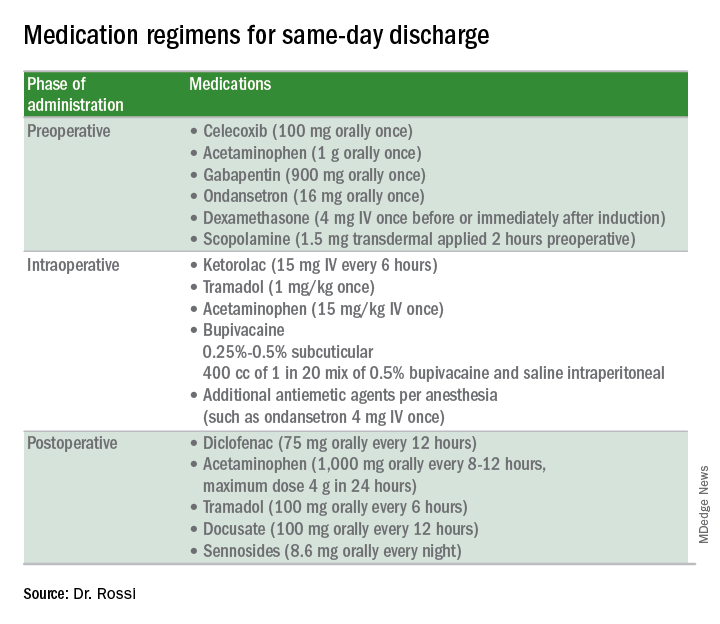Preoperative strategies
Postoperative pain and nausea can be preempted with immediate preoperative doses of dexamethasone, gabapentin, ondansetron, celecoxib, and acetaminophen. Postoperative nausea is associated with dehydration; therefore, ensure patients are well hydrated preoperatively by avoiding bowel preparations and minimizing the duration of nothing-by-mouth status. Multimodal pain strategies have consistently shown improved perioperative pain control and decreased GI dysfunction.4Intraoperative strategies
Consider in-and-out catheterization rather than placement of an indwelling catheter for anticipated short cases without complex bladder dissection.5 Minimize blood loss and maximally evacuate blood and clots with suction because hemoperitoneum can induce nausea and pain.
Pain from retained gas under the diaphragm can be reduced by bathing the diaphragms with 400 cc of dilute local anesthetic made by mixing 50 mL of 0.5% bupivacaine in 1000 mL normal saline prior to removal of pneumoperitoneum and while still in Trendelenburg. Ensure there is minimal retained intraperitoneal CO2 at the completion of the surgery by asking the anesthesiologists to perform positive pressure ventilations prior to fascial closure. Consider injecting port sites (including the peritoneal and fascial layers) with a mixture of immediate and long-acting local anesthetics. Request that the anesthesia staff administer intraoperative doses of IV ketorolac, acetaminophen, and tramadol (in preference to opioids) and an aggressive perioperative cocktail of antiemetics.


